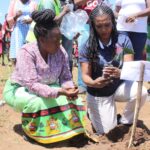World Bank approves US$150 million to Malawi to support current reform program to stabilize the economy
Published on July 19, 2012 at 3:47 AM by FACE OF MALAWI
The World Bank’s Board of Executive Directors approved US$150 million to Malawi to support the government with its current reform program to stabilize the fragile economy. This will help accelerate the resumption of growth, support a quick rebound in the agricultural sector, and cushion the costs of the economic transition.
The Malawi Government is implementing critical macro-economic and structural reforms under new leadership of Mrs. Joyce Banda following the untimely death of the former President last April. The economy remains fragile given Malawi’s weak reserve position, and the urgent need to restore fiscal sustainability. Some of the key economic reforms that have been implemented since May 2012 include liberalizing Malawi’s exchange rate regime and significant fuel and power price adjustments to better cover costs of these essential commodities.
The World Bank will support Malawi through a Rapid Response Program (RRP) that consists of a Rapid Response Development Policy Grant which is a budget support operation worth $50 million; and additional financing for two on-going projects. The projects, which will get $50 million each, are the Irrigation, Rural Livelihoods and Agricultural Development (IRLAD), and the Third Malawi Social Action Fund (MASAF III).
“The RRP was prepared within a very short time frame because of the urgent support that Malawi needs. This support is very critical to help maintain the momentum for the bold reforms that Malawi is taking and inject resources needed to mitigate economic transition costs,” said Sandra Bloemenkamp, Malawi’s Country Manager for the World Bank. “The resources will also help quickly scale up social protection programs and agriculture investments for small farmers to mitigate the effects of the adjustments in the economy on the poor,” she added.
The budget support operation for the Financial Year 2012-2013 will focus on efforts to restore macroeconomic stability, improve functioning of the petroleum market and incentives to exporters, including smallholder tobacco farmers. It will also improve economic management of the farm input subsidy program and strengthen social protection interventions and the resilience of the most vulnerable groups to shocks. The Task Team Leader (TTL) for the budget support operation is Ms. Appolenia Mbowe.
Both MASAF and IRLAD will provide mitigation measures for the vulnerable people in rural and urban areas, and smallholder farmers. The Additional Financing (AF) for MASAF will help scale up the social safety net program through labor intensive public works. It will have nationwide coverage. The number of additional beneficiaries will be 586,000 households or 2.9 million people. The expanded Public Works Program is expected to be implemented in the next twelve months. The MASAF AF is expected to close in June 2014. The TTL for MASAF is Ms. Ida Manjolo.
The IRLAD AF will scale up its social safety net function and support productive rural livelihoods in irrigation, as well as prepare for further investments that strengthen resilience in agriculture. The project will reach an additional 230,000 households (about 1.25 million people) and scale up to all districts in the country. The additional financing will support the project until closure in December 2014.The TTL for IRLAD is Mr. Pieter Waalewijn.
The Malawi portfolio has 13 projects in the following sectors: agriculture, finance and private sector development, human development, environment, infrastructure, and, energy and mining.


